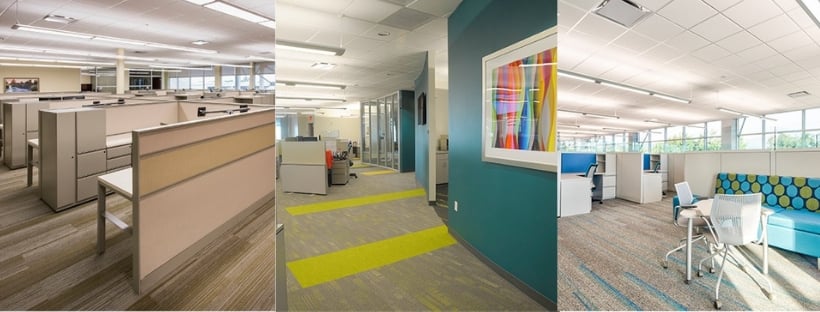![]()

With advancing technology and evolving consumer behavior, digital experience centers (i.e., call centers) are becoming more important in the financial world than ever before. Needs for larger back office functions and more space—at a headquarters or administrative building—where digital experience centers might be located are essential in modern day business strategies.
In recent years, there has been a shift from using outsourced call centers to implementing domestic in-house digital experience centers. USA Today states that this trend is driven by “changes in technology, rising overseas labor costs, and customers demanding better and more specialized service. ” For financial institutions, the ability to better secure consumer information by keeping the center within the organization is highly important. As consumers demand better service, digital experience centers are no longer just a call center—they are sometimes the only point of contact between the consumer and organization. These centers need to employ subject matter experts (SMEs) in different areas such as loans, investing, and credit. In some instances, a SME would need to be in a staging area for video conferencing if a consumer were to call in from an ITM or a branch location that does not staff that position. There are several layers of complexity and questions to ask when designing a digital experience center.
A few factors to consider include:
• The hours outside of typical once hours that the digital experience center operates
• The types of SMEs the digital experience center will house with specialized staging space
• The digital experience centerr software that the organization chooses to use
NewGround has successfully designed several digital experience center that are housed in the same building as the administrative and executive staff by considering the points above. Each center is designed specifically to fit the client’s needs for the best efficiency and functionality.